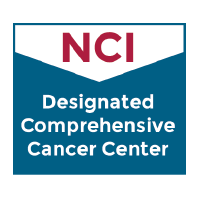
Cholangiocarcinoma
Cholangiocarcinoma is a rare cancer found in the tissue of the bile ducts, occurring in approximately two out of 100,000 people. Men and women are equally affected and most cases occur in people over age 65. The bile duct is a small tube that connects the liver and gallbladder to the small intestine. The ducts carry bile – the liquid that helps break down fat in food during digestion – out of the liver.
Tumors can develop anywhere on the bile ducts and are typically slow growing. However, by the time a diagnosis usually is made, many of the tumors are too advanced to be surgically removed. Other conditions such as primary sclerosing cholangitis, bile duct cysts and chronic biliary irritation, are associated with an increased risk of cholangiocarcinoma.
Our Approach to Cholangiocarcinoma
UCSF provides state-of-the-art care for cholangiocarcinoma, also called bile duct cancer. In addition to hepatobiliary surgeons, who specialize in the liver, gallbladder and bile duct, our team includes transplant surgeons, diagnostic radiologists, interventional radiologists, medical oncologists, hepatologists, gastroenterologists and anesthesiologists.
For patients who need major surgery, our transplant surgeons apply their expertise in living donor liver transplantation to perform complex reconstruction of the hepatic artery, portal vein or bile duct. This allows us to remove tumors that other centers may have deemed inoperable because they involve major vessels.
Our physician-scientists are dedicated to discovering additional treatments for cholangiocarcinoma through research. Interested patients may have the option to participate in clinical trials, which evaluate potential new therapies.
Awards & recognition
-

Among the top hospitals in the nation
-

Best in Northern California for cancer care (tie)
-

One of the nation's best in gastroenterology & GI surgery
-

Designated comprehensive cancer center
UCSF Health medical specialists have reviewed this information. It is for educational purposes only and is not intended to replace the advice of your doctor or other health care provider. We encourage you to discuss any questions or concerns you may have with your provider.





